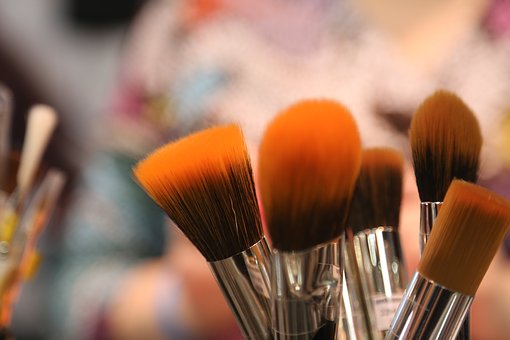
Fake Cosmetics = Fake News? Unfortunately not.
‘Fake News’ is everywhere, but where’s the discussion around fake cosmetics? Why are consumers happy to buy fake cosmetics? And, more worryingly, why isn’t contemporary society more concerned?
By fake cosmetics, we mean cosmetics carrying high-end and valued brands which have been deliberately designed to look exactly like the original product, right down to the original product packaging, but which contain shocking ingredients such as lead, paint stripper and even faeces. We’re not talking about merely substandard ingredients here; we’re talking about chemical burns and full on allergic reactions. So why are fake cosmetics still around and why is the demand apparently greater than ever?
It seems like social media has a huge part to play. The influence of social media upon the millennial generation means that many are more interested in being able to post a selfie with what appears to be the latest designer makeup on the dressing table, than they are about what is actually in the product or the standard of hygiene in the production process. Many are willing to deliberately and repeatedly buy counterfeit products and accept the risk that goes with that. Moreover, the quality of the copying is becoming increasingly sophisticated so that even when consumers can make a side by side comparison (which is rare) it is not always easy to identify which is fake and which is real.
So how do cosmetic companies address this issue and protect their products from the counterfeit market?
Unfortunately, there is no easy answer, but there are strategies available that are proving to be successful. Companies need to help consumers make a quick visual evaluation between fake and genuine products. The offering of limited editions with distinctive packaging is an effective way of doing this; for the genuine business it creates a demand around a specific version of the product and by the time the counterfeit product with the desired packaging is available, the genuine brand is ready to move on to its next limited edition offering. Of course this creates logistical challenges and manufacturing issues but the number of high end cosmetic companies offering limited edition products suggests this is an effective strategy.
Of course, as trade mark attorneys, we are going to tell you that the product needs to be fully protected both in terms of the brand and the packaging. We are also going to tell you that protection is needed in both the country of manufacture and the export territories. Increasingly customs and excise barriers are being used to stop counterfeit products from entering the UK with authorities seizing more than 2.2 million counterfeit items in 2017. For example, if a company has proof fake cosmetics are being produced in China, and then it should engage with the Chinese custom authorities to stop those products from leaving the country. Of course this requires effort and money but utilising IP by engagement with the enforcement authorities is an effective and underused tool.
But perhaps the true driver has to be one of education. To tap into the mindset of the millennials and what they desire from a brand. Yes, image, prestige and having the same as your peers are important, but millennials are also expressing a desire to interact and purchase from companies with a moral conscience. This is an opportunity for the industry to unite and use the platform it has to educate people why fake cosmetics are so dangerous. Not just in terms of the individuals who use them, but to the world more generally. The industry could expose the unseen child labours, the horrendous working conditions in factories, the effect of leaked paint stripper pouring into rivers, the environmental damage at large and harness that moral conscience to turn the tide on the demand for fake cosmetics.
In the meantime, how can consumers protect themselves from fake cosmetics? Of course, by choosing to buy from a physical store it is much easier to know, but by buying online, they should engage common sense – mainly if the price seems too good to be true for that brand, it probably is!
At Barker Brettell we have a team of IP experts with lots of experience of supporting cosmetic companies. If you want to discuss any of the subjects in this article or anything else, please email Rosalyn Newsome, Head of Cosmetics Sector.



